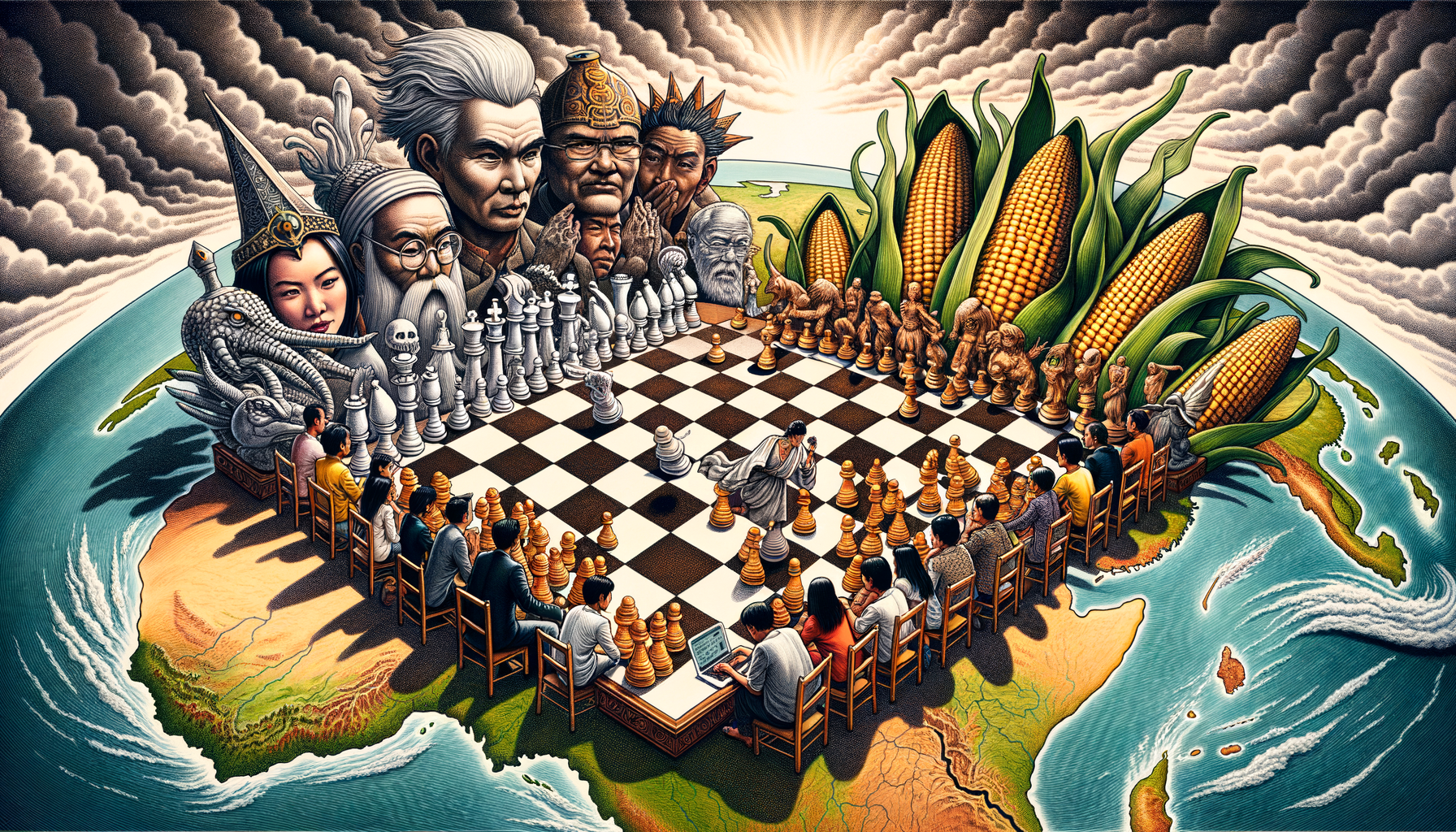Water, Food, Stability: Scarcity's Global Geopolitical Ripple
15th March, 2024
In the shadow of burgeoning global challenges, water scarcity and food security stand as harbingers of a potentially destabilized future. As nations grapple with the daunting realities of dwindling natural resources, the intricate dance of geopolitical strategy over these essential elements intensifies, steering us toward a horizon where cooperation and competition converge in unexpected ways.
At the heart of this complex scenario are regions like the Mekong Delta, China, India, and beyond, where the relentless march of climate change, rapid urbanization, and population growth collides with the finite nature of water and agricultural land. These hotspots, emblematic of wider global crises, spotlight the critical need for innovative solutions and strategic foresight in averting scarcity-driven conflict.
Singapore's pioneering foray into high-tech vertical farming and water recycling, alongside Israel's success with desalination technology, underscores a global pivot towards creativity in crisis management. Coupled with strategic international partnerships, such as the Singapore-Australia Go-Green Co-Innovation Programme, we glimpse the potential for collaborative ingenuity in addressing food and water security.
Nevertheless, the specter of geopolitical tension looms large, with past and present water-sharing disagreements hinting at future discord. The Indus Water Treaty and the controversies surrounding the Grand Ethiopian Renaissance Dam (GERD) exemplify how water can become a focal point for interstate conflict, yet also a domain for diplomatic engagement and mutual understanding.
The dual threats to food security and water availability invoke a comprehensive suite of strategic responses. Beyond technological innovation and international cooperation lies the realm of geopolitical strategy, where nations must navigate the twin imperatives of securing their own futures while maintaining global stability. The challenge becomes not just one of resource management, but of fostering a spirit of collaboration that transcends borders and political divides.
In this tenuous landscape, the roles of leadership, resolve, initiative, and entrepreneurship emerge as force catalysts, driving nations toward a sustainable equilibrium. Historical leadership dynamics, the multiplicity of resolve, and the dialectic of initiative in geopolitical and resource innovations form the bedrock on which future strategies are built. The entrepreneurial spirit, particularly in technology and procedural innovations, lights the path toward durable solutions to the intertwined crises of water deficit and food supply vulnerabilities.
As we stand on the precipice of a potentially fractious future, the lessons of net assessment urge us towards a holistic view, integrating past insights with future prognostications to craft strategies of resilience. The intricacies of managing water crises and ensuring food security, pivotal in the broader geopolitical landscape, demand a balance between national interests and collective global well-being. Through cooperative frameworks and cutting-edge solutions, we may yet shape a stable and secure world, forging a future where cooperation overcomes competition in the quest for sustainable resource management.
Transform Innovation Into Strategy
Reach out to discover customized solutions and strategic insights for your business. Contact us below.

